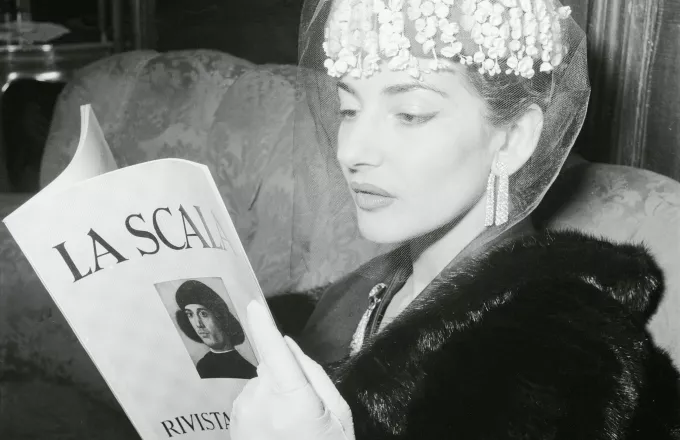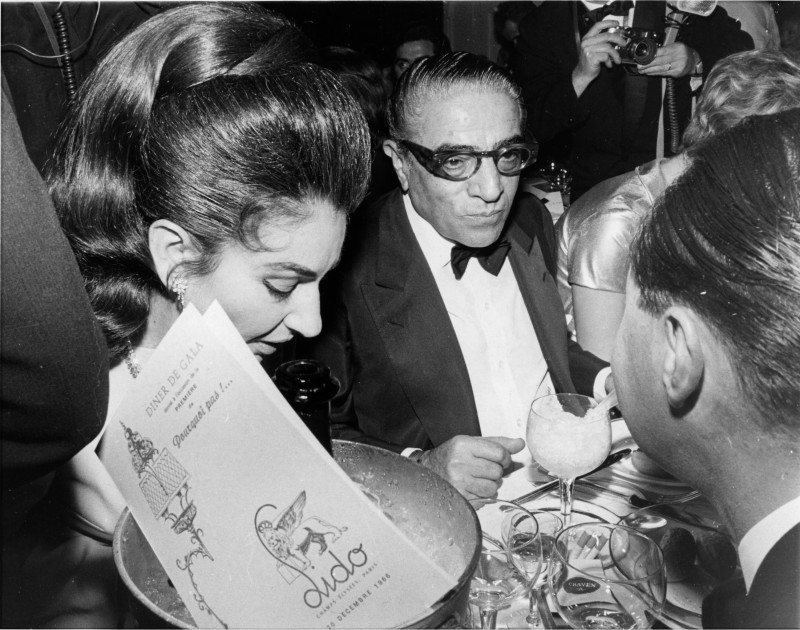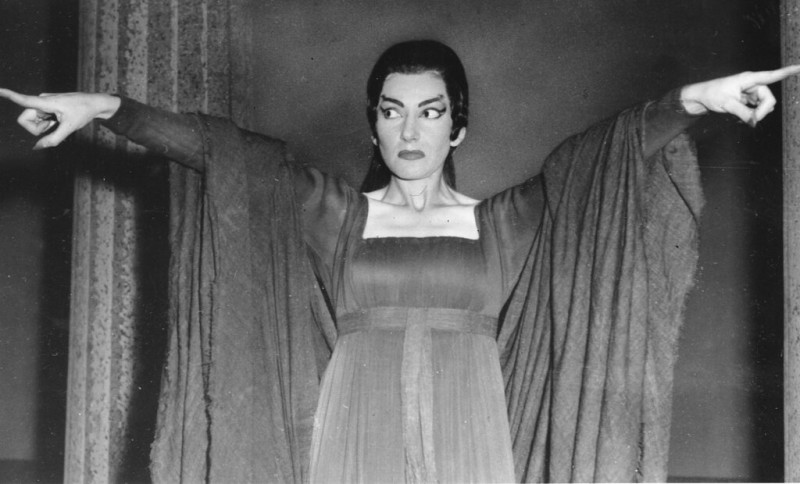He sang “like an angel” since he was a child. He later revolutionized opera. Interest in the project, but also in her personal life, remains high
More than 45 years after her death in 1977, Maria Callas remains a point of reference in opera and indeed with recordings and appearances that go back mainly to the 50s. It is described as “divine” and “absolute tweeter”. The famous Greek soprano was an exceptional soprano with incredible charisma, charm, explosive character and a private life that filled the headlines for many years. Today, December 2, marks 100 years since her birth in 1923.
“She had a divine voice,” say elderly Greeks who were lucky enough to see Callas live at a young age in Athens. Maria Anna Sofia Keikilia Kalogeropoulou, who was born in New York in 1923 as the daughter of Greek immigrants from Neochori, Messinia, returned with her mother from the US to the Greek capital in 1937. The relationship with her ambitious mother was problematic throughout. Calla’s life. “Only when I sang did they allow me to feel loved,” the Greek soprano complained in her interviews. Referring to her childhood, Callas also said that: “There should be a law that prohibits the forced presence of minors on stage. Children should live their childhood and not shoulder too many responsibilities.”
Maria Callas was not only impressive with her great talent, but also with her ambition and absolute professionalism. Her first appearance at the Arena di Verona in 1947 laid the foundations for a successful career. Two years later she married the Italian industrialist and opera star Giovanni Meneghini, 27 years her senior. At that time she also met the Italian chief musician Tullio Serafin, whom the Greek soprano considered to be one of the most important people she met.
He brought the emotion to the scene
Maria Callas’ greatest contribution to opera is that she brought emotion to the stage, changing a lot in a space that was considered obsolete. Rightly so, the famous soprano had said in a 1968 interview with the BBC, “Opera is dead”, clarifying that: “We are not the ones who composed the opera, we are the performers. As a performer, you have to stay true to the work, but at the same time make sure to captivate your audience”, he used to say, to add that the opera sometimes seems old-fashioned: “Where we think the composer may have failed, we can give fresh air, a new breath. That’s what I mean when I say opera is dead.”
“He’s electrifying on stage. In the opera Medea she is a pure source of energy,” said the 35-year-old American composer and chief musician Leonard Bernstein in 1953. The two leading musicians made their debut that year at La Scala in Milan with the opera “Medea” by Luigi Cherubini, which Callas presented in 1961 in Epidaurus. Callas said of this collaboration with Leonard Bernstein: “It was perfect. He understood everything I wanted and I understood everything he wanted.”
Can the story of Maria Callas be told without her fatal love affair with the shipowner Aristotle Onassis? The curators of the new Maria Callas Museum, which opened its doors in October in Athens, think so. No photo, video or other document refers to one of the most famous Greeks. Only an elegant invitation to Maria Callas for a dinner in Venice in September 1957 is displayed in a glass case. “At this dinner he met Onassis,” says an employee of the museum on Mitropoleos Street. Callas divorced for the sake of the Greek shipowner. Aristotle Onassis did the same. A scandal that then made headlines around the world. Onassis, however, did not marry Maria Callas, but Jackie Kennedy, widow of former US President John Kennedy, causing uproar and international reactions.
“I’m not always perfect”
Callas suffered not only from the separation, which hurt her deeply, but also from the constant reports in the press. When asked why he didn’t want to be an idol, he stated: “I’m afraid. A lot of people need idols, but they’re very easy to destroy. (…) I’m not an idol, I’m human. I’m not always perfect.”
But the public expected the perfect from Kallas: in life, but also on stage. And when the fatigue in her voice began to become evident in the late 1950s, the reactions of the public and critics were relentless. However, her irascible character, as well as her rift with the artistic directors and chief musicians of both Milan’s La Scala and New York’s Metropolitan Opera, made headlines. But the confrontation was always related to the music and the artistic choices, the famous speaker emphasized in her interviews.
After artistically unsuccessful tours, Maria Callas spent the last years of her life in her apartment in Paris: alone, unhappy and weakened physically and mentally. On September 16, 1977 she collapsed with the doctor called to simply pronounce her dead. “The divine Callas is dead,” the headlines read at the time. And die-hard fans said he “died of a broken heart.”
Source :Skai
I am Frederick Tuttle, who works in 247 News Agency as an author and mostly cover entertainment news. I have worked in this industry for 10 years and have gained a lot of experience. I am a very hard worker and always strive to get the best out of my work. I am also very passionate about my work and always try to keep up with the latest news and trends.













